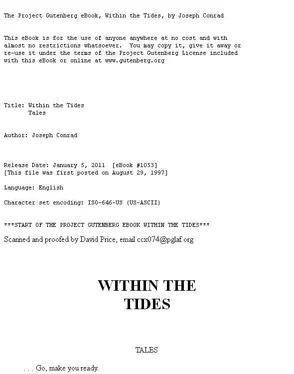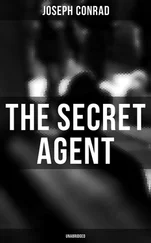The discovery of these slight signs was more appalling to Byrne than the absolute absence of every mark would have been. So Tom had died striking against something which could be hit, and yet could kill one without leaving a wound—by a breath.
Terror, hot terror, began to play about Byrne’s heart like a tongue of flame that touches and withdraws before it turns a thing to ashes. He backed away from the body as far as he could, then came forward stealthily casting fearful glances to steal another look at the bruised forehead. There would perhaps be such a faint bruise on his own forehead—before the morning.
“I can’t bear it,” he whispered to himself. Tom was for him now an object of horror, a sight at once tempting and revolting to his fear. He couldn’t bear to look at him.
At last, desperation getting the better of his increasing horror, he stepped forward from the wall against which he had been leaning, seized the corpse under the armpits, and began to lug it over to the bed. The bare heels of the seaman trailed on the floor noiselessly. He was heavy with the dead weight of inanimate objects. With a last effort Byrne landed him face downwards on the edge of the bed, rolled him over, snatched from under this stiff passive thing a sheet with which he covered it over. Then he spread the curtains at head and foot so that joining together as he shook their folds they hid the bed altogether from his sight.
He stumbled towards a chair, and fell on it. The perspiration poured from his face for a moment, and then his veins seemed to carry for a while a thin stream of half, frozen blood. Complete terror had possession of him now, a nameless terror which had turned his heart to ashes.
He sat upright in the straight-backed chair, the lamp burning at his feet, his pistols and his hanger at his left elbow on the end of the table, his eyes turning incessantly in their sockets round the walls, over the ceiling, over the floor, in the expectation of a mysterious and appalling vision. The thing which could deal death in a breath was outside that bolted door. But Byrne believed neither in walls nor bolts now. Unreasoning terror turning everything to account, his old time boyish admiration of the athletic Tom, the undaunted Tom (he had seemed to him invincible), helped to paralyse his faculties, added to his despair.
He was no longer Edgar Byrne. He was a tortured soul suffering more anguish than any sinner’s body had ever suffered from rack or boot. The depth of his torment may be measured when I say that this young man, as brave at least as the average of his kind, contemplated seizing a pistol and firing into his own head. But a deadly, chilly, langour was spreading over his limbs. It was as if his flesh had been wet plaster stiffening slowly about his ribs. Presently, he thought, the two witches will be coming in, with crutch and stick—horrible, grotesque, monstrous—affiliated to the devil—to put a mark on his forehead, the tiny little bruise of death. And he wouldn’t be able to do anything. Tom had struck out at something, but he was not like Tom. His limbs were dead already. He sat still, dying the death over and over again; and the only part of him which moved were his eyes, turning round and round in their sockets, running over the walls, the floor, the ceiling, again and again till suddenly they became motionless and stony—starting out of his head fixed in the direction of the bed.
He had seen the heavy curtains stir and shake as if the dead body they concealed had turned over and sat up. Byrne, who thought the world could hold no more terrors in store, felt his hair stir at the roots. He gripped the arms of the chair, his jaw fell, and the sweat broke out on his brow while his dry tongue clove suddenly to the roof of his mouth. Again the curtains stirred, but did not open. “Don’t, Tom!” Byrne made effort to shout, but all he heard was a slight moan such as an uneasy sleeper may make. He felt that his brain was going, for, now, it seemed to him that the ceiling over the bed had moved, had slanted, and came level again—and once more the closed curtains swayed gently as if about to part.
Byrne closed his eyes not to see the awful apparition of the seaman’s corpse coming out animated by an evil spirit. In the profound silence of the room he endured a moment of frightful agony, then opened his eyes again. And he saw at once that the curtains remained closed still, but that the ceiling over the bed had risen quite a foot. With the last gleam of reason left to him he understood that it was the enormous baldaquin over the bed which was coming down, while the curtains attached to it swayed softly, sinking gradually to the floor. His drooping jaw snapped to—and half rising in his chair he watched mutely the noiseless descent of the monstrous canopy. It came down in short smooth rushes till lowered half way or more, when it took a run and settled swiftly its turtle-back shape with the deep border piece fitting exactly the edge of the bedstead. A slight crack or two of wood were heard, and the overpowering stillness of the room resumed its sway.
Byrne stood up, gasped for breath, and let out a cry of rage and dismay, the first sound which he is perfectly certain did make its way past his lips on this night of terrors. This then was the death he had escaped! This was the devilish artifice of murder poor Tom’s soul had perhaps tried from beyond the border to warn him of. For this was how he had died. Byrne was certain he had heard the voice of the seaman, faintly distinct in his familiar phrase, “Mr. Byrne! Look out, sir!” and again uttering words he could not make out. But then the distance separating the living from the dead is so great! Poor Tom had tried. Byrne ran to the bed and attempted to lift up, to push off the horrible lid smothering the body. It resisted his efforts, heavy as lead, immovable like a tombstone. The rage of vengeance made him desist; his head buzzed with chaotic thoughts of extermination, he turned round the room as if he could find neither his weapons nor the way out; and all the time he stammered awful menaces. . .
A violent battering at the door of the inn recalled him to his soberer senses. He flew to the window pulled the shutters open, and looked out. In the faint dawn he saw below him a mob of men. Ha! He would go and face at once this murderous lot collected no doubt for his undoing. After his struggle with nameless terrors he yearned for an open fray with armed enemies. But he must have remained yet bereft of his reason, because forgetting his weapons he rushed downstairs with a wild cry, unbarred the door while blows were raining on it outside, and flinging it open flew with his bare hands at the throat of the first man he saw before him. They rolled over together. Byrne’s hazy intention was to break through, to fly up the mountain path, and come back presently with Gonzales’ men to exact an exemplary vengeance. He fought furiously till a tree, a house, a mountain, seemed to crash down upon his head—and he knew no more.
Here Mr. Byrne describes in detail the skilful manner in which he found his broken head bandaged, informs us that he had lost a great deal of blood, and ascribes the preservation of his sanity to that circumstance. He sets down Gonzales’ profuse apologies in full too. For it was Gonzales who, tired of waiting for news from the English, had come down to the inn with half his band, on his way to the sea. “His excellency,” he explained, “rushed out with fierce impetuosity, and, moreover, was not known to us for a friend, and so we . . . etc., etc. When asked what had become of the witches, he only pointed his finger silently to the ground, then voiced calmly a moral reflection: “The passion for gold is pitiless in the very old, señor,” he said. “No doubt in former days they have put many a solitary traveller to sleep in the archbishop’s bed.”
Читать дальше












